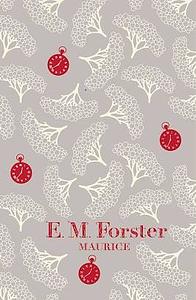Take a photo of a barcode or cover
emotional
hopeful
reflective
sad
medium-paced
Plot or Character Driven:
Character
Strong character development:
Yes
Loveable characters:
No
Diverse cast of characters:
Yes
Flaws of characters a main focus:
Yes
Dude!!!!! I could not put this down. Fascinating as a time capsule of queer history but also just an impeccable character study. This novel planted a bittersweet ache in my chest that won't soon fade.
emotional
hopeful
sad
medium-paced
Plot or Character Driven:
Character
Strong character development:
Yes
Loveable characters:
No
Diverse cast of characters:
No
Flaws of characters a main focus:
Complicated
enjoyable! i liked how everyone was a bit of a cunt
This book struck me in so many ways. It made me think about the nature of relationships in many new ways, even though the social contexts it describes have been lost for nearly a century in some way or another. I didn't know what to expect going into this book, and it sure wasn't anything like what I thought it would be. [spoilers kinda] Watching how the relationship built in the first half of the book is subverted and changed by time, class, and expectation was so interesting, and how Clive and Maurice each responded to it as well. The ending, although it came sooner than I expected, felt right.
Perhaps the most well known quote from this book, or at least the one have I encountered the most, comes in the terminal note: "A happy ending was imperative. I shouldn't have bothered to write otherwise. I was determined that in fiction anyway two men should fall in love and remain in it for the ever and ever that fiction allows". I love this quote, and the circumstances around this book are perhaps what drew me too it so strongly. In a time where queer people in fiction still so often face death or torture, a book written over a century ago that realizes a happy ending, feels ironic and refreshing. I think the ending of this book is not one most readers would recognize as happy, as Forster says, "it belongs to an England where it was still possible to get lost." The ability to build lives, outside of public view, is one that seems so fitting for this story. I wrote quite a few quotes out longhand as I was reading, some of which from earlier in the book I look back on with perhaps a very different view given Clive's later attitude, but perhaps my favorite is from the second to last page of the story:
"'You care for me a little bit, I do think,' he admitted, 'but I can't hang all my life on a little bit. You don't. You hang yours on Anne. You don't worry about whether your relationship with her is platonic or not, you only know it's big enough to hang a life on. I can't hang mine onto the five minutes you spare me from her and politics. You'll do anything for me except see me. That's been it for this whole year of Hell. You'll make me free of the house and take endless bother to marry me off, because that puts me off your hands. You do care a little. for me, I know' - for Clive had protested - 'but nothing to speak of, and you don't love me. I was yours once till death if you'd cared to keep me, but I'm someone else's now - I can't hang about whining for ever - and he's mine in a way that shocks you, but why don't you stop being shocked, and attend to your own happiness?' 'Who taught you to talk like this?' Clive gasped. 'You, if anyone.'"
Maurice and his development as a character became fully realized to me in this speech. It also speaks of the ways we connect with others and why we connect with others in ways I find interesting and at least slightly relatable.
Overall, no book is perfect, but Maurice was satisfying to read. I reached the end and felt like I had completed something. I am still turning it over in my mind, it has brought larger questions to my mind since about page 30, but it told the story it was meant to tell, and did so quite well. There were many small quotes, declarations of affection or small intimate descriptions, that made me smile or feel a tug somewhere in my chest. Older books always feel somewhat more distant to me, but this one felt closer to home. I am excited to reread this book in a few years to see how I have changed, if the story brings me something new.
Perhaps the most well known quote from this book, or at least the one have I encountered the most, comes in the terminal note: "A happy ending was imperative. I shouldn't have bothered to write otherwise. I was determined that in fiction anyway two men should fall in love and remain in it for the ever and ever that fiction allows". I love this quote, and the circumstances around this book are perhaps what drew me too it so strongly. In a time where queer people in fiction still so often face death or torture, a book written over a century ago that realizes a happy ending, feels ironic and refreshing. I think the ending of this book is not one most readers would recognize as happy, as Forster says, "it belongs to an England where it was still possible to get lost." The ability to build lives, outside of public view, is one that seems so fitting for this story. I wrote quite a few quotes out longhand as I was reading, some of which from earlier in the book I look back on with perhaps a very different view given Clive's later attitude, but perhaps my favorite is from the second to last page of the story:
"'You care for me a little bit, I do think,' he admitted, 'but I can't hang all my life on a little bit. You don't. You hang yours on Anne. You don't worry about whether your relationship with her is platonic or not, you only know it's big enough to hang a life on. I can't hang mine onto the five minutes you spare me from her and politics. You'll do anything for me except see me. That's been it for this whole year of Hell. You'll make me free of the house and take endless bother to marry me off, because that puts me off your hands. You do care a little. for me, I know' - for Clive had protested - 'but nothing to speak of, and you don't love me. I was yours once till death if you'd cared to keep me, but I'm someone else's now - I can't hang about whining for ever - and he's mine in a way that shocks you, but why don't you stop being shocked, and attend to your own happiness?' 'Who taught you to talk like this?' Clive gasped. 'You, if anyone.'"
Maurice and his development as a character became fully realized to me in this speech. It also speaks of the ways we connect with others and why we connect with others in ways I find interesting and at least slightly relatable.
Overall, no book is perfect, but Maurice was satisfying to read. I reached the end and felt like I had completed something. I am still turning it over in my mind, it has brought larger questions to my mind since about page 30, but it told the story it was meant to tell, and did so quite well. There were many small quotes, declarations of affection or small intimate descriptions, that made me smile or feel a tug somewhere in my chest. Older books always feel somewhat more distant to me, but this one felt closer to home. I am excited to reread this book in a few years to see how I have changed, if the story brings me something new.
emotional
hopeful
sad
medium-paced
Plot or Character Driven:
Character
Strong character development:
Complicated
Loveable characters:
Yes
Diverse cast of characters:
Yes
Flaws of characters a main focus:
No
emotional
fast-paced
Plot or Character Driven:
A mix
Strong character development:
Complicated
Loveable characters:
Complicated
Flaws of characters a main focus:
Yes
This book pleasantly surprised me.
I originally added Maurice to my TBR because of the interesting background story, that's what got my attention. Forster wrote this in 1914 but it wasn't released until 1971, the year after he died. This book is so explicitly gay that it couldn't safely be published in its time.
Maurice is about a gay man in the early 1910s, struggling to come to terms with his sexuality, and dealing with queer romance. The novel also explores themes of religion and class.
I won't spoil anything, but the specific detail that is apparently the main reason why it couldn't be published – it's just sad. And ironic.it has a happy ending, or at least can be interpreted as happy. Apparently this would have been more acceptable if it had ended with suicide... how awful!
As I was putting together a loose TBR for autumn (it's only the end of August, I'm an early prepper), I took this book into consideration, reading the first few pages to help me decide. Well, I was instantly pulled in, only taking a few days to finish the whole book. Maurice is pretty fast paced for a classic. The writing style is sweet at times, but not too wordy. It also feels very... contemporary for its time, if that makes sense? Rather than having an almost universal "old timey" feel. It's kind of like how The Outsiders by S.E. Hinton absolutely screams 1960s, with certain terms and phrases that don't show up much in other eras, as far as I know.
In addition to the writing style being more fast paced and accessible than I had expected, Maurice is surprising because it's even more explicitly gay than I had imagined. If I were around in the 1970s and read this, I'd be gobsmacked! Can't even imagine what it would have been like if it were released in 1914. Of course, this is very tame compared to more recent pieces of queer media, thankfully we've come a long way since the early 1900s.
Now, let's get into what I didn't like. While I think the somewhat plain language is okay, I felt that the plot needed more room to breathe, maybe ~20 pages longer to flesh things out better? Particularly the last act, which was originally even shorter?! Not everyone will agree, but it uses a certain trope that is a huge turn off for me as a reader. The trope:insta-love, aka love at first sight. Ack! It's just not believable, and makes it hard to identify with the characters, especially with a new character being introduced late on in the story. I'm a slow burn fan
Overall, I didn't connect deeply with this book, but it was entertaining to read, and I appreciate its uniqueness.
I would recommend Maurice if you like: queer history, academic settings, morally gray characters, ambiguous endings.
I originally added Maurice to my TBR because of the interesting background story, that's what got my attention. Forster wrote this in 1914 but it wasn't released until 1971, the year after he died. This book is so explicitly gay that it couldn't safely be published in its time.
Maurice is about a gay man in the early 1910s, struggling to come to terms with his sexuality, and dealing with queer romance. The novel also explores themes of religion and class.
I won't spoil anything, but the specific detail that is apparently the main reason why it couldn't be published – it's just sad. And ironic.
As I was putting together a loose TBR for autumn (it's only the end of August, I'm an early prepper), I took this book into consideration, reading the first few pages to help me decide. Well, I was instantly pulled in, only taking a few days to finish the whole book. Maurice is pretty fast paced for a classic. The writing style is sweet at times, but not too wordy. It also feels very... contemporary for its time, if that makes sense? Rather than having an almost universal "old timey" feel. It's kind of like how The Outsiders by S.E. Hinton absolutely screams 1960s, with certain terms and phrases that don't show up much in other eras, as far as I know.
In addition to the writing style being more fast paced and accessible than I had expected, Maurice is surprising because it's even more explicitly gay than I had imagined. If I were around in the 1970s and read this, I'd be gobsmacked! Can't even imagine what it would have been like if it were released in 1914. Of course, this is very tame compared to more recent pieces of queer media, thankfully we've come a long way since the early 1900s.
Now, let's get into what I didn't like. While I think the somewhat plain language is okay, I felt that the plot needed more room to breathe, maybe ~20 pages longer to flesh things out better? Particularly the last act, which was originally even shorter?! Not everyone will agree, but it uses a certain trope that is a huge turn off for me as a reader. The trope:
Overall, I didn't connect deeply with this book, but it was entertaining to read, and I appreciate its uniqueness.
I would recommend Maurice if you like: queer history, academic settings, morally gray characters, ambiguous endings.
Moderate: Homophobia, Misogyny
Minor: Sexual content, Classism
hopeful
inspiring
mysterious
reflective
sad
medium-paced
Plot or Character Driven:
Character
Strong character development:
Yes
Loveable characters:
Complicated
Diverse cast of characters:
Complicated
Flaws of characters a main focus:
Yes
challenging
emotional
medium-paced
Plot or Character Driven:
A mix
Strong character development:
Yes
Loveable characters:
Complicated
Diverse cast of characters:
No
Flaws of characters a main focus:
Yes
emotional
reflective
medium-paced
Plot or Character Driven:
Character
Strong character development:
Yes
Loveable characters:
Complicated
Diverse cast of characters:
Yes
Flaws of characters a main focus:
Complicated
emotional
reflective
sad
slow-paced
Plot or Character Driven:
Character
Strong character development:
Yes
Loveable characters:
Complicated
Diverse cast of characters:
No
Flaws of characters a main focus:
Yes
(written Nov 2024, several months after finishing the book)
I think I read this at the wrong time in my life and did not give this work the attention it deserved. While historically important and clearly well crafted, it did not make for an enjoyable experience. I found some of the pacing choices frustrating, and didn't care for the characters or setting.
Recommended if you're looking for classic literature depicting a man struggling with his sexuality, enjoy a posh turn-of-the-century british setting, and are looking for a novella that requires some close reading. 2.5 stars rounded down (which, as always, reflect my personal enjoyment of this book and not its literary merit).
I think I read this at the wrong time in my life and did not give this work the attention it deserved. While historically important and clearly well crafted, it did not make for an enjoyable experience. I found some of the pacing choices frustrating, and didn't care for the characters or setting.
Recommended if you're looking for classic literature depicting a man struggling with his sexuality, enjoy a posh turn-of-the-century british setting, and are looking for a novella that requires some close reading. 2.5 stars rounded down (which, as always, reflect my personal enjoyment of this book and not its literary merit).
emotional
sad
fast-paced
Plot or Character Driven:
Character
Strong character development:
Yes
Loveable characters:
No
Diverse cast of characters:
No
Flaws of characters a main focus:
Yes








